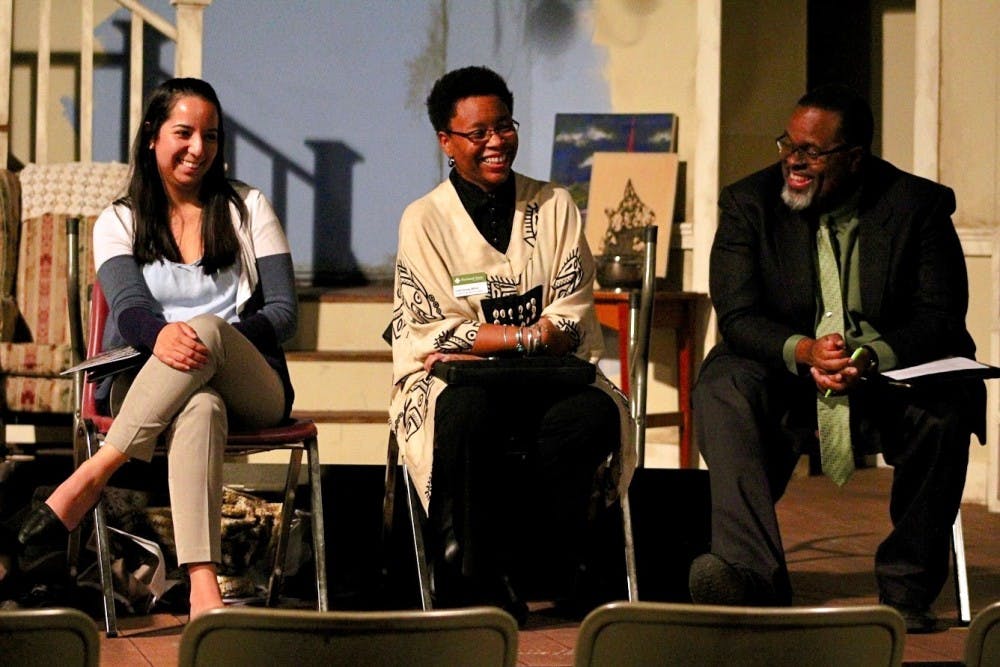On Thursday night, students, faculty and community members came together for a panel discussion following the fall play, “Appropriate.” The panel, “Of Theft and Destruction: American Legacies in ‘Appropriate,’” garnered an audience of about 50 in Mago Hunt to unpack the play’s themes of race and family inheritance.
“Appropriate” is an intense living room drama that follows a family as they struggle to understand their father’s racist past.
The panel discussion included UP faculty, students and community members. The panelists, also called “racial equity warriors,” included Winston Grady-Willis, director of the School of Gender, Race and Nations at Portland State University; Lisa Grady-Willis, Director of Diversity Education and Learning at PSU; Yuridia Hernandez Osorio, University of Portland coordinator for Diversity and Inclusion Programs; Bill Jenkins, UP director of Employee Relations, Danielle Dillard, president of the Black Student Union; and Brandon Rivera, ASUP president. The discussion was moderated by Meghan Holliday, “Appropriate” stage manager, Kala Muller, dramaturg, and Elijah Fisher, assistant director.
The panel’s purpose was to unpack with the audience the themes of the play, specifically the silence of the white family on issues of racial inequality and oppression. The panelists pointed out that this is not a thing of the past—silence among the family is a prevailing issue.
“That begs the question, how can we talk about race and equality in America when we can’t talk about it with people we have a heritage with?” Jenkins said.
“Appropriate” takes place in the living room of an old house in the South with a racist history. A deceased father’s daughter and two sons return after many years with their families to find the house has fallen into disarray.
The family finds suspect artifacts of the father’s, and struggles to face the truth: their patriarch was a brutal racist. In intense and personal conversations, the siblings come to terms with their father’s past and the struggles of their own pasts as well.
“Silences around family members, the refusal to interrogate, that really struck me,” Winston Grady-Willis said.
Themes of America’s racist history were threaded throughout the play. Lisa Grady-Willis pointed out that the United States’ racist past is something that can’t be forgotten.
“It reminds me of the ways that the past and the present are always in conversation with each other,” Lisa Grady-Willis said.
Still, Dillard pointed out, the theme of racism in the play was at times quite indirect.
“It was more subtle because it’s from the perspective of a white family,” Dillard said. “I became concerned that as a black woman I could see the subtle issues of race, but a white person might not see that. It was brilliant that (the playwright) was able to talk about racism in such a symbolic way.”

Lisa Grady-Willis emphasized that some discomfort during the play can be a sign of growth.
“When we’re having these types of conversations, discomfort can be a really good thing,” she said. “It signals that we are challenging ourselves.”
Tough conversations about race and prejudice are the first step toward creating change, according to Fisher.
“In case you were thinking we were gonna change the world tonight, it’s not gonna happen,” Fisher said. “But progress is progress.”








